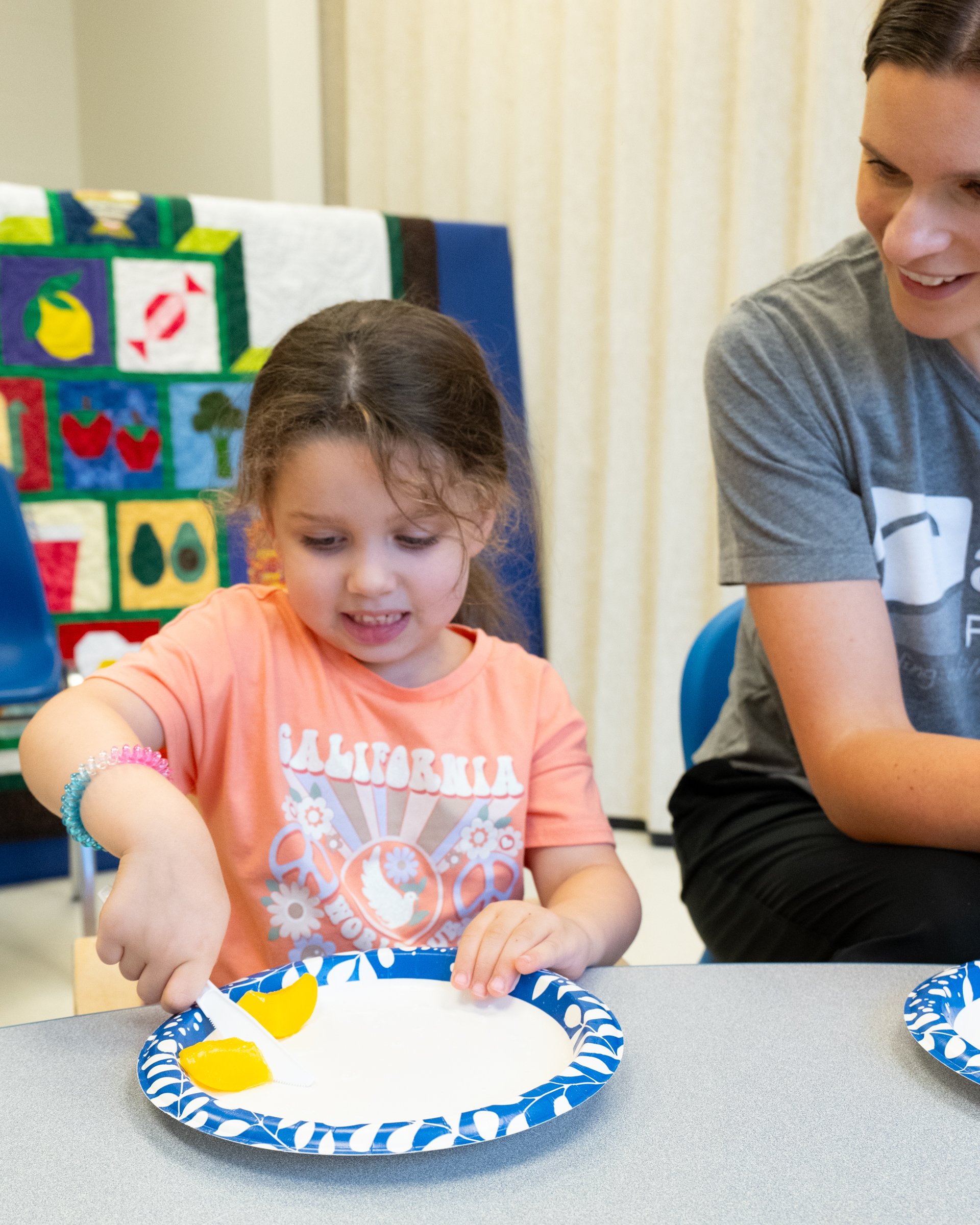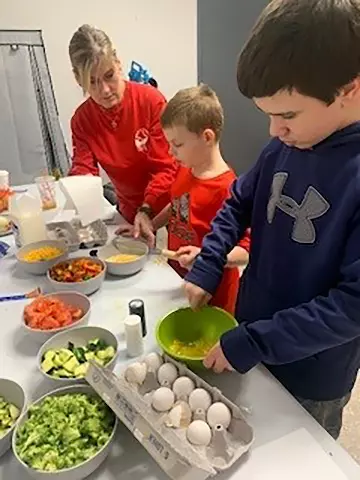Navigating the Course to Effective Feeding: Ingenious Techniques and Treatments for Effective Feeding Treatment
Are you having a hard time to locate efficient approaches and treatments for effective feeding therapy? Plus, we'll reveal you the relevance of teaming up with families and caregivers for ideal feeding end results. Obtain all set to navigate the course to successful feeding!
Assessing Feeding Obstacles and Recognizing Objectives
You ought to begin by assessing your kid's feeding obstacles and identifying particular objectives for their treatment. It's essential to communicate these objectives with your youngster's feeding specialist so they can tailor the therapy sessions to address these certain challenges. By examining your kid's feeding obstacles and establishing objectives, you are taking the very first action towards assisting them create effective feeding skills.
Implementing Evidence-Based Approaches for Feeding Therapy
Carrying out evidence-based strategies for feeding treatment can lead to positive results for children. When you incorporate these methods into your youngster's treatment plan, you are making certain that the treatments made use of are sustained by scientific research and have been verified effective. This technique increases the probability of success and aids resolve the particular feeding challenges your child may be experiencing.
By following evidence-based techniques, you can supply your kid with the finest possible care and assistance. These approaches might consist of using a range of sensory experiences during mealtimes, such as discovering various appearances and flavors, to urge approval of new foods. Additionally, executing therapy techniques can assist address fussy consuming practices and promote much healthier consuming patterns.
Another vital facet of evidence-based feeding therapy is entailing the family in the therapy process. By offering education and learning and assistance to parents and caretakers, they can play an energetic function in helping their youngster overcome feeding challenges. This collaborative strategy improves the effectiveness of treatment and promotes lasting favorable changes in your child's eating behaviors.

Attending To Sensory Handling Issues in Feeding Treatment
Attending to sensory handling problems in feeding therapy can be challenging, but it is vital for promoting a positive eating experience for children. When you encounter a kid with sensory handling troubles throughout mealtime, it is very important to recognize that their reactions to particular appearances, preferences, smells, and even audios are not deliberate (food aversion therapy long island). By recognizing and attending to these concerns, you can assist create an encouraging setting that encourages healthy and balanced consuming practices
One effective method is to introduce new foods progressively. Begin with small, non-threatening sections and gradually increase the amount in time. This approach enables the kid to come to be aware of the food and its sensory properties at their very own pace. In addition, supplying a range of tastes and textures can help desensitize their sensory system and expand their food choices.
Engaging the child in sensory play tasks can additionally be valuable. Encourage them to check out various structures, such as squishing, pressing, or touching various food products. This can help stabilize sensory input and decrease hostilities to particular textures.
Another vital aspect is supplying a tranquil and organized eating atmosphere. Lessen distractions, such as loud sounds or brilliant lights, which can bewilder their detects and hinder their ability to focus on eating. Creating a foreseeable regular and utilizing aesthetic schedules can likewise aid the kid really feel even more safe and secure and in control throughout mealtime.

Utilizing Assistive Technology and Adaptive Tools
Utilizing assistive technology and adaptive equipment can substantially improve the feeding experience for kids with sensory handling troubles. When you have problem with sensory processing, nourishment can be tough and overwhelming. With the right devices, you can make it an extra satisfying and successful experience.
One alternative is utilizing specialized utensils and plates designed to suit your needs. These tools may have textured handles or a larger hold, making them simpler to hold and control. Plates with separated sections can help separate various foods and stop them from touching, which can be a source of pain for some children.
In addition to specialized plates and tools, there are additionally assistive tools that can be used during feeding. A heavy vest or lap pad can provide deep stress input, helping to soothe and control your sensory system. A shaking tooth brush or chewable precious jewelry can offer dental sensory stimulation, making the act of eating much more pleasurable.
Modern technology can additionally contribute in enhancing the feeding experience. There are devices and apps offered that can give auditory or visual hints, such as timers or prompts, to help you remain concentrated and arranged throughout mealtime.
Teaming Up With Families and Caregivers for Successful Feeding Outcomes
When working together with family members and caretakers, you can function together to create a helpful and nurturing setting for effective feeding outcomes. By involving households and caretakers in the feeding therapy process, you can acquire important insights into the kid's feeding practices, obstacles, and choices. feeding therapy farmingdale ny. This partnership allows for an alternative technique to feeding treatment, resolving not just the physical elements but also the emotional and emotional factors that might affect a youngster's feeding capacities
One secret aspect of teaming up with caretakers and families is giving education and training. By furnishing visit our website them with understanding and abilities, they can actively join the feeding treatment process and support the child's progression outside of treatment sessions. This can include showing them feeding techniques, approaches for managing nourishment behaviors, and understanding the importance of consistency and regimen in developing healthy eating habits.
Moreover, involving households and caretakers in personal goal setting and therapy planning makes sure that their perspectives and objectives for the youngster are taken into account. By working together, you can develop attainable and reasonable goals that straighten with the household's values and concerns - food therapist farmingdale. This collaborative technique cultivates a sense of ownership and empowerment, developing a strong foundation for effective feeding end results
In enhancement, normal and open communication with families and caregivers is important for efficient partnership. By keeping recurring discussion, you can deal with worries, give assistance, and make essential changes to the feeding treatment strategy as required. This interaction likewise permits sharing progression updates, celebrating achievements, and identifying any challenges or barriers that may arise.

Verdict
You have actually explored numerous techniques and treatments for effective feeding therapy, such as examining obstacles, implementing evidence-based check here techniques, dealing with sensory handling issues, and using assistive technology. Keep in mind to constantly remain proactive and cutting-edge in your technique to feeding treatment.
It's important to communicate these objectives with your youngster's feeding specialist so they can customize the therapy sessions to deal with these specific challenges.Executing evidence-based strategies for feeding therapy can lead to positive outcomes for children.Attending to sensory handling concerns in more helpful hints feeding treatment can be tough, however it is necessary for promoting a positive eating experience for children. By involving households and caretakers in the feeding therapy process, you can gain important understandings into the kid's feeding preferences, difficulties, and practices. By furnishing them with understanding and skills, they can actively participate in the feeding treatment process and support the kid's development outside of therapy sessions.